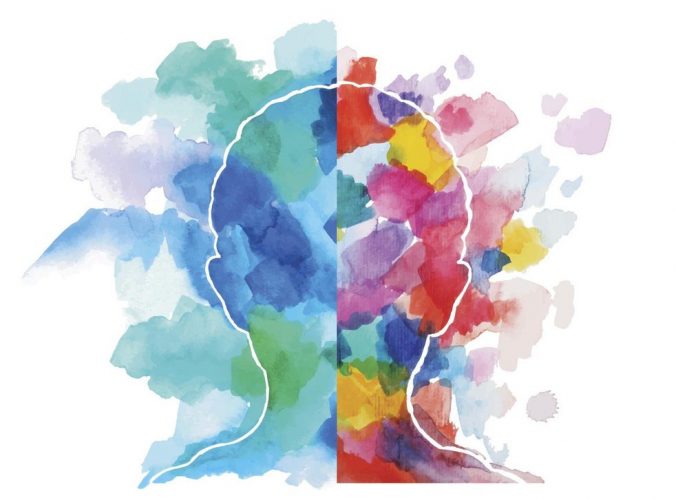Your mental health influences how you think, feel, and behave in daily life. It also affects your ability to cope with stress, overcome challenges, build relationships, and recover from life’s setbacks and hardships.
Looking after your mental health is just as important as looking after your physical health. By taking some simple steps each day, you can help ensure that you stay mentally healthy as well as physically healthy.
Eat Well
‘You are what you eat’ is a phrase we hear a lot, but it’s true. Steer clear of unhealthy and sugary foods which can slow the body down and cause fatigue, low moods and even depression. A balanced diet consisting of all the main food groups in moderation will not only help your mental health, but also your physical health – and the two are connected. Of course, an occasional treat is good for morale too – just in moderation!
Get Some Sleep
Sleeping well and for long enough is key to a healthy body and a healthy mind. If you have enough quality sleep, then the brain is better able to function and take on the challenges of the day ahead. Most adults need about eight hours sleep a night, but everyone is different. It’s best not to eat, or to use tablets or mobile phones, play computer games or to listen to loud music just before going to sleep as these can make it harder for the brain to settle down and for you to sleep soundly. There is evidence to show that night-time internet surfing can increase the chances of developing a mental illness by threefold. It’s good to get into a good sleeping routine with not too many late nights. A disrupted body clock can ultimately result in depression or even bipolar disorder.
Keep Active
We all know that regular exercise and just moving more is good for our physical health, but it can also have real benefits for mental health. There are clear links between our mental health and our physical health – one influences the other. When we exercise, the brain releases serotonin and endorphins which make us feel happier. It stands to reason then, that the more we exercise, the happier we may then be. Exercise can also be a very sociable activity, increasing our interaction with other people and extending our life experiences – all positive for the brain and mental well-being.
Think Positively
Some days when it’s pouring with rain or blowing a gale it can be a hard thing to do, but looking on the bright side of things, focusing on positives and on the things that make you happy, and surrounding yourself with the people that make you happy and feel good about yourself, can really help your mood and overall mental well-being.
Talk
As the old saying goes, ‘a problem shared is a problem halved’. Something as simple as talking through an issue can be really helpful and make things seem less stressful and more manageable. Instead of bottling things up, try and talk through your worries with your partner, a family member or close friend.
Be Sociable
In today’s social media and technology driven world it should be easy to stay in touch with friends and family. However, sometimes we can become far too involved in the virtual world of social media feeds and emails and forget to mix on a face to face basis. It can also be easy to fall into the trap of seeing the virtual, and sometimes seemingly perfect, world of social media and emails as reality. For some this can result in feelings of inadequacy by taking too much notice of what others are posting, and in extreme cases, it can cause depression and anxiety. Research has shown that if you spend more than three hours a day on social media, you are twice as likely to suffer from poor mental health. It’s important not to miss out on the pleasures of real life by mixing with real people, so take time to meet with family and friends in person, or pick up the phone and chat.
Chill Out
No matter how busy life is, it is important to take time out for yourself and to relax. Relaxation can take many different forms. It might be going out with friends, doing a hobby, enjoying the fresh air, exercising, reading a book or even meditating. Being able to take a step back away from life’s stresses helps maintain a good life balance and ultimately good mental health. Mindfulness is another way of achieving this – by living in the here and now and appreciating the present.
Strong mental health isn’t just the absence of mental health problems. Being mentally or emotionally healthy is much more than being free of depression, anxiety, or other psychological issues. Rather than the absence of mental illness, mental health refers to the presence of positive characteristics.
People who are mentally healthy have:
- A sense of contentment.
- A zest for living and the ability to laugh and have fun.
- The ability to deal with stress and bounce back from adversity.
- A sense of meaning and purpose, in both their activities and their relationships.
- The flexibility to learn new skills and adapt to change.
- A balance between work and play, rest and activity, etc.
- The ability to build and maintain fulfilling relationships.
- Self-confidence and high self-esteem.
People who are emotionally and mentally resilient have the tools for coping with difficult situations and maintaining a positive outlook. They remain focused, flexible, and productive, in bad times as well as good. Their resilience also makes them less afraid of new experiences or an uncertain future. Even when they don’t immediately know how a problem will get resolved, they are hopeful that a solution will eventually be found.
Ref: www.helpguide.org

Leave a Reply
You must be logged in to post a comment.